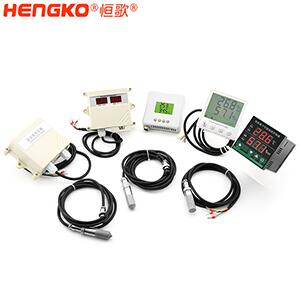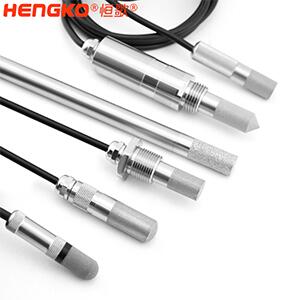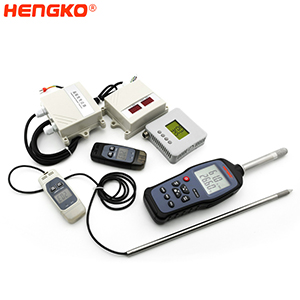Meteorology the study of processes and phenomena in the atmosphere has made remarkable advances in recent years. The advent of supercomputers, Earth-orbiting satellites and new monitoring and measurement techniques, advances in data modeling, and a deeper knowledge of atmospheric physics and chemistry have all contributed tremendously to discoveries about our climate and weather systems.
Meteorological sensors have helped us to now be able to predict future weather events more accurately. We are also able to use atmospheric modeling as a basis for predicting the development of strategies to address the impacts of climate change.

I. Sensors for Remote Weather Stations.
A key factor in the advancement of meteorological science is the availability of a new generation of sophisticated multifunctional automated weather stations designed for use in remote areas. These utilize the latest GPS, cloud-based communications, and solar technologies to provide scientists with data from several different kinds of sensors (temperature and humidity sensors, pressure sensors, dew point sensors, etc.) and measurement instruments, often in real time.
Although a variety of sensors are used in different types of weather stations, almost all of them are required to measure temperature and humidity. The measurement of humidity is especially important if accurate weather forecasts are to be made. This is especially true in the agricultural sector, where humidity is one of the most important factors affecting crop growth, risk of pest infestation, and changes in weather conditions. When used in conjunction with measurements of soil moisture, temperature, and storm conditions, accurate moisture monitoring allows farmers to determine the best time to plant, apply pesticides, or harvest crops. It also helps reduce waste, improve yields and minimize carbon emissions.

II. Demanding conditions require rugged sensors.
By their very nature, weather applications are often extremely demanding. Widely fluctuating temperatures, strong winds, large amounts of rain, snow, and ice, plus dust, sand, salt, and agricultural chemicals are all commonplace. For example, our relative humidity sensors are currently used in a variety of weather stations in harsh environments.
Therefore, humidity sensors must be designed to withstand harsh conditions while providing accurate, consistent, and repeatable data. Weather stations are often located in remote or inaccessible locations, and the small size, lightweight, and low power consumption of Hengko's all-in-one temperature and humidity transmitters make them ideal for this purpose.
Drift can affect all humidity sensors as it changes gradually over time. The degree of drift will depend on several factors, the most important of which are the operating conditions and the quality of the sensor construction.
In simple terms, a humidity sensor consists of three layers with moisture-detecting dielectric material sandwiched between two charged electrodes. Changes in humidity affect the impedance of the dielectric material and thus the current flowing through the sensor. Since the dielectric requires a small exposure to the surrounding atmosphere, its performance deteriorates over time, especially in the presence of corrosive chemicals.
Hengko's latest temperature and humidity sensor use a specialized coating to protect the sensor layer without affecting performance in terms of accuracy, hysteresis, responsiveness, and reliability. It also significantly reduces drying time after condensation.

The technology employed by Hengko engineers ensures that the challenges of sensor drift are successfully overcome, while advanced onboard electronics provide intelligent sensor tuning, data management, and external communications. Compact, lightweight, and requiring minimal power, these instruments are ideally suited for harsh weather environments where they will continue to play an important role in advancing our understanding of weather patterns and climate change.
Media Contact
Company Name: HENGKO
Contact Person: Media Relations
Email: Send Email
Phone: 0086-755-88823250
Country: China
Website: https://www.hengko.com/

